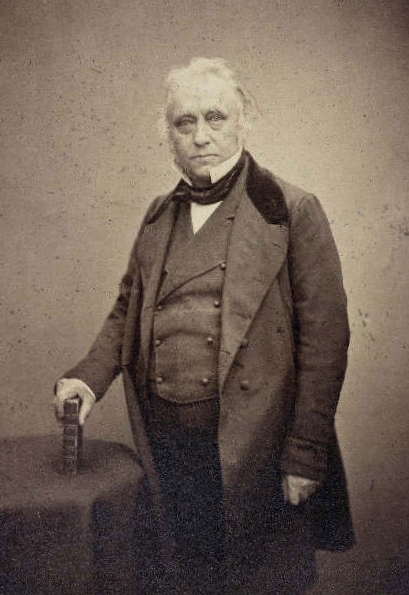„Grzeczność – to dobroć w drobnostkach.”
Źródło: Leksykon złotych myśli, wyboru dokonał Krzysztof Nowak, Warszawa 1998.
Thomas Babington Macaulay, 1. baron Macaulay , brytyjski pisarz, historyk i polityk, członek stronnictwa wigów, minister w rządach lorda Melbourne'a i lorda Johna Russella.
Był najstarszym synem Zachary'ego Macaulaya, abolicjonisty i gubernatora Sierra Leone. Wykształcenie odebrał w Trinity College na Uniwersytecie Cambridge. Podczas studiów pisał wiersze i wygrał wiele nagród, m.in. złoty medal Kanclerza Uniwersytetu w czerwcu 1821 r. W 1825 r. opublikował esej o Johnie Miltonie na łamach Edinburgh Review. W 1826 r. rozpoczął praktykę adwokacką, ale porzucił karierę prawniczą dla polityki.
W 1830 r. został wybrany do Izby Gmin z okręgu Calne. Dał się poznać jako zwolennik reform wyborczych oraz równouprawnienia obywateli, głównie zniesienia dyskryminacji Żydów. Po uchwaleniu Great Reform Act w 1832 r. zmienił okręg na Leeds. W latach 1832-1833 był sekretarzem Rady Kontroli. Po uchwaleniu Government of India Act w 1833 r. został jednym z członków Rady Gubernatora Generalnego.
Macaulay wyjechał do Indii w 1834 r. Przez 4 lata pracował w Najwyższej Radzie Indii. Doprowadził do ustanowienia języka angielskiego obowiązkowym językiem szkolnictwa wyższego. Stał na czele Komisji Prawnej, która przygotowała założenia Kodeksu Karnego , Kodeksu Procedury Karnej oraz Kodeksu Procedury Cywilnej .
Po powrocie do Wielkiej Brytanii w 1838 r. Macaulay uzyskał mandat parlamentarny z okręgu Edinburgh. W 1839 r. został sekretarzem ds. wojny. Po upadku gabinetu w 1841 r. poświęcił się pracy literackiej. Napisał wówczas zbiór ballad Lays of Ancient Rome. W 1841 r. przedstawił swoje poglądy na kwestie prawa autorskiego, które stały się ważną podstawą kształtowania się tego prawa w krajach anglosaskich. W latach 1846-1848 był Paymaster-General. W 1847 r. utracił miejsce w Izbie Gmin.
W 1849 r. został wybrany rektorem Uniwersytetu Glasgow. W 1852 r. został ponownie wybrany z okręgu Edinburgh, ale z powodu złego stanu zdrowia, który doprowadził go do zawału serca, zrezygnował z mandatu w 1856 r. Był jednym z założycieli National Portrait Gallery. W 1857 r. otrzymał tytuł 1. barona Macaulay i zasiadł w Izbie Lordów. Zmarł w 1859 r. i został pochowany w Opactwie Westminsterskim. Nigdy się nie ożenił i nie pozostawił potomstwa. Wraz z jego śmiercią wygasł tytuł parowski.
Umierając Macaulay pozostawił niedokończonym swoje najważniejsze dzieło, Dzieje Anglii od wstąpienia na tron Jakuba II. Pracę nad nim rozpoczął w latach 40. Pierwsze dwie części ukazały się w 1848 r., dwie następne w 1855 r. Macaulay miał nadzieję dojść w swojej pracy do śmierci królowej Anny , ale zmarł ukończywszy tylko jeszcze jeden tom. Szóstą część, kończącą się na śmierci Wilhelma III wydała po śmierci Macaulaya jego siostra. Chociaż jego praca była krytykowana za nieukrywaną sympatię do wigów, sprzedano w tydzień 26 000 jej egzemplarzy. Przetłumaczono ją na język niemiecki, polski, duński, szwedzki, włoski, język francuski, niderlandzki, hiszpański, węgierski, rosyjski, czeski i perski.
Wikipedia

„Grzeczność – to dobroć w drobnostkach.”
Źródło: Leksykon złotych myśli, wyboru dokonał Krzysztof Nowak, Warszawa 1998.
„Im więcej czytam o Sokratesie, tym mniej się dziwię, że go otruto.”
The more I read about him, the less I wonder that they poisoned him.
Źródło: Robert E. Sullivan, Macaulay: The Tragedy of Power, Belknap Press of Harvard University Press, 2009, s. 172.
Speech https://api.parliament.uk/historic-hansard/commons/1833/jul/10/east-india-companys-charter#column_536 in the House of Commons (10 July 1833)
1830s
Vol. II, ch. 10
History of England (1849–1861)
Minute on Education http://www.columbia.edu/itc/mealac/pritchett/00generallinks/macaulay/txt_minute_education_1835.html (1835)
Minute on Indian Education (1835)
Letter written to his father in 1836. Quoted in Indian Church History Review, December 1973, p. 187. Partially quoted in Goel, S. R. (2016). History of Hindu-Christian encounters, AD 304 to 1996. Chapter 13. ISBN 9788185990354 . Quoted from Koenraad Elst, The Argumentative Hindu (2012) Chapter 3
"From his Speech in Parliament on the Government of India Bill, 10 July 1833. Quoted from Koenraad Elst, The Argumentative Hindu (2012) Chapter 3
Speech in the House of Commons (24 June 1853) https://api.parliament.uk/historic-hansard/commons/1853/jun/24/government-of-india-bill-adjourned#column_758
1850s
I laughed so convulsively that the other people who were staring at the books took me for a poor demented gentleman. Alas for poor David!
Journal entry (8 March 1849), quoted in George Otto Trevelyan, The Life and Letters of Lord Macaulay, Volume II (1876), p. 253
1840s
Speech to his committee at Leeds after the Reform Bill had received the Royal assent (1832), quoted in George Otto Trevelyan, The Life and Letters of Lord Macaulay, Volume I (1876), pp. 283–284
1830s
Speech in the House of Commons (2 March 1831) https://api.parliament.uk/historic-hansard/commons/1831/mar/02/ministerial-plan-of-parliamentary-reform#column_1204 in favour of the Reform Bill
1830s
Speech in the House of Commons (5 April 1830) https://api.parliament.uk/historic-hansard/commons/1830/apr/05/the-jews#column_1313 in favour of Robert Grant's Jewish Disabilities Bill
1830s
Speech to a meeting of the Anti-Slavery Society held at Freemasons' Tavern (25 June 1824), quoted in Report of the Committee of the Society for the Mitigation and Gradual Abolition of Slavery Throughout the British Dominions, Volume I (1824), p. 77
1820s